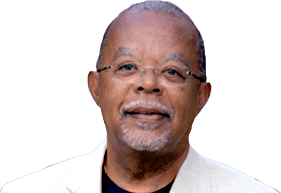Gail R. Campbell
I grew up on Twin Peaks, San Francisco, with professional parents who hired others to care for us three kids. When I was 4, I was left in the care of a Black woman named Maimee. I was very attached to her, as my parents were in essence, missing: they’d gone to Europe for a year with my older brother. I don’t know when Maimee left, but I missed her. No one ever talked about her leaving. She just left.
When I was in my early teens, I had a dentist, Dr. Daniels, who was Black who I saw until I was shipped to a boarding school where there was nothing but white people. It felt so strange, because friends of my parents were gay (men and women), Black, Chinese, Japanese and it was just what it was: a group of mostly artist friends. But when the riots in the south were happening, the horror of those three civil rights workers who were murdered was never really discussed, nor the unreal police actions with their dogs in Little Rock. I didn’t understand why those kids shouldn’t have been able to just attend college without the incredible, ferocious reactions of white people in the south.
My mother had been a friend of Katherine Dunham (Katy Dunham), the splendid dancer, from whom she’d learned some Russian (Katy was a Communist at the time). When Kruschev was in SF and in an entourage going around Twin Peaks, my mother said “Dosvedanya” to him, and she was immediately swarmed by secret service people, which was a hoot. But when I brought home a black friend from SF State to dinner, my father was shockingly contemptuous toward him. I was stunned and embarrassed by his behavior. My mother later said that he was ill (he’d had cancer) but I felt his behavior was racist.
My parents were more disposed to value academic accomplishment and disdain those not having it. Dr. Daniels was a highly skilled dentist. I think my father and mother thought highly of him.
As an adult, I was interested in how to solve problems and worked in Employee and Labor Relations handling EEO complaints, discipline, grievances and appeals for the Navy (Civil Service). I was tasked to provide the best technical information I could to complainants and their representatives while functioning for management. I had to observe a fine line: I could not tell either side the other’s information. Upon leaving, the chief representative, an elderly Black statesman of a man, Mr. Perry Jonagan, came into my office. He said he knew I was leaving and he “just wanted to stop by to say thank you for being good to my people.” It was one of the highest complements I was ever paid in work, despite being given this and that award. I had seen how corrupt and racist management could be. I then went to the Naval Subase, Bangor, WA, where I was able to write Bill of Rights protections into the base’s personnel regulations, to protect employees from management’s abuses.
I later worked as an Affirmative Action Analyst for a Eugene, OR college where I saw all kinds of illegal manipulations of the hiring process. I called them on it and was forced out. The Personnel Office was corrupt as could be. When asked how he recruited for positions in the Science Dept., the Dept. Head showed me a file of resumes he kept in his desk. He said he notified them of an opening. No fair hiring there. I intervened in several instances where overzealous security personnel were just itching to get into disputes with mostly black students. Not only did I want to head off provocative confrontations, I wanted to protect the students from inciting, aggressive mgmt actions. I was told by mgmt to “stand down.” I told them I had just spared the college a very damning and damaging discrimination complaint.
I also became aware of the subject of white privilege through the U of Oregon Affirmative Action office.
I was once married to a full Yakima man. Once, we were all with his mom who was trying to buy a new car, but whenever she asked a question, the salesman would address his answer to me, instead, totally dissing her and all the Yakima people I was with. All I could do was turn from him, it was so humiliating for her. She was like another mother to me and I was very angry at him for what he did. To this day, I still see gross injustice, like at Pendleton Roundup where all the whites have cushy, shaded stands with nice bathrooms but the Indians have only some hot, shabby bleachers to sit on along with awful, dirty bathrooms. The Anglo dominance theme still is playing itself out there. I help out friends at longhouses, cooking when there’s an occasion like a funeral, a memorial, a first-kill ceremony. I’m honored to be let help with the foods. Even there, thirty years ago, I was shocked when my husband referred to Black people in a pejorative manner as “chemukle.” It’s better now. There’s more acceptance of mixed Black/Indian kids at powwows. But that negaive word still persists. I think there was some jealousy that Black people were being afforded recognition and rights in the 60’s-70’s which Indians were still being denied.
It’s hard to tell a lot about someone I don’t know. I go in with the attitude that everyone has a Ph. D. of some sort. Maybe that’s pollyanna-ish but I only have a B.A., so I’m bound to learn something from them if I just shut up.




